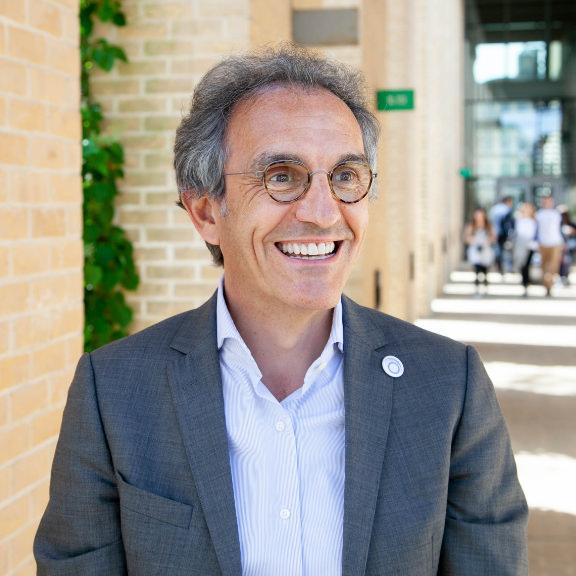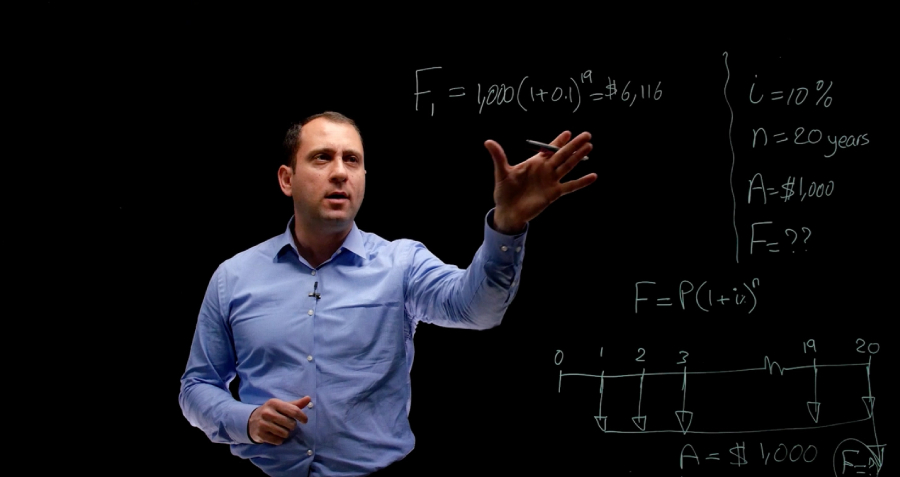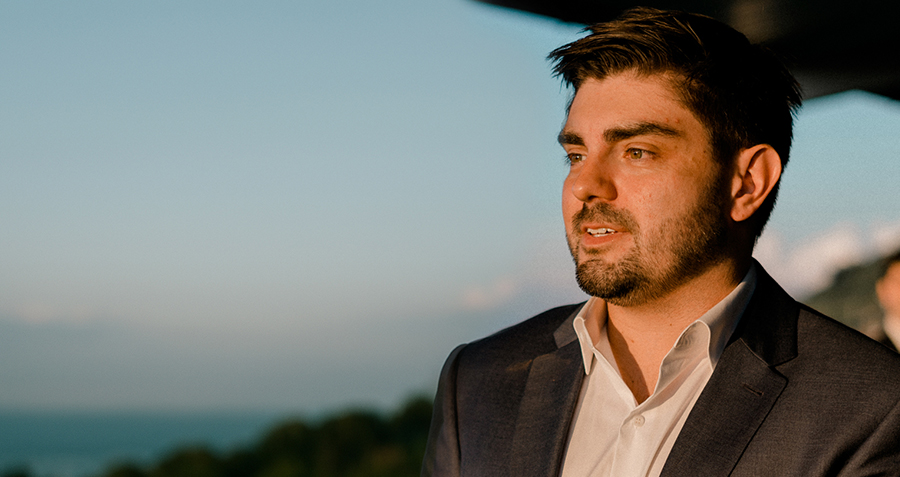
Ahead of our webinar on ‘The Future of Sustainable Business’, hosted with the support from Catalyst, Mars Incorporated’s internal think-tank. We spoke with Bruno Roche to get his thoughts on how companies should see profit and purpose.
Bruno Roche has led Mars Catalyst globally from Brussels since 2006. Under his leadership, Catalyst has developed groundbreaking methodologies in the areas of marketing effectiveness and M&A integration. It has also expanded geographically from its US and European base to become truly global – covering Asia and Africa.
Spurred by a questions posed in 2007 by the leadership of Mars Incorporated – “What is the right level of profit for the corporation?” – Catalyst developed the Economics of Mutuality (EoM) program which has matured into a breakthrough management innovation and disruptive model for inclusive growth. EoM aims to empower businesses to adopt a more complete and mutual form of capitalism that is fairer and more efficient than the dominant profit-maximizing business models.
Q.Could you explain the concept of Economics of Mutuality?
EoM has been designed from the outset in 2007 as a management innovation – an approach to equip business to create its performance and its impact by mobilizing resources in the ecosystem in which it works.
There has been 3 phases to describe the responsible behavior of companies. The first phase was the charity wave whereby companies would make their economic power on one hand and then they would create a foundation to spend the money they made. A visible example is the Gates Foundation. Bill Gates created Microsoft and then developing a foundation to address responsible and important issues. But actually the purposes of the foundation and the purpose of the company and their activities are completely different. The second phase is Corporate Social Responsibility which and corresponds to when companies started to realize they have a negative impact on society and the environment – and therefore had to bring the agenda of responsibility closer to the strategic agenda of the firm. CSR is about “doing good at a cost” and is mostly driven to mitigate risk, lower negative impact and manage reputation. EoM belongs to the 3rd phase of “doing well financially by doing good for society and the environment.” It is designed as a management innovation to generate a higher level of value creation performance for all (vs. value extraction for a few). It is based on a new purpose-centric value creation model; new reciprocal relationships between business, society, the environment and work; new modes of performance measurement and profit construction; and a new central role for finance.
The argument we are developing is that companies that do not embrace this innovation and this new definition of responsibility are companies that are missing an opportunity and may take the risk of becoming irrelevant. It’s a bit similar to the companies that didn’t want to embrace the marketing revolution in the 70’s and 80’s in the West and refused to invest in the intangible assets of brands.
Today, especially post-Covid, I think companies are at a similar cross road. The purpose centric value creation model – which requires companies to invest in responsible interventions in the ecosystem in which they operate — will be soon the new normal. It’s radical innovation similar to the digital revolutions that is shaping the corporate agenda of the decades to come.
Q.How should companies be thinking about profit?
Our argument is that, essentially, profit is an outcome, not an objective. The purpose of business therefore is not to make profit but to develop profitable, scalable solutions to the problems of people on the planet. Not profiting from creating problems. In short, when the purpose of profit is to solve a problem in the ecosystem you have a higher level of commitment from the stakeholders and eventually a higher level of financial performance (including profit).
It is true that ‘Profit Maximization and Financial Capitalism’ have led to economic empires, unfathomable wealth for some, and conditions for a new middle class to emerge that lifted many out of poverty. But these facts alone do not mean that either approach has been optimally efficient or morally defensible. In the past, systems where people were held in slavery and exploited gave birth to empires of great wealth, yet they were morally bankrupt. From the perspective of human wellbeing, human competencies and social capital (trust, social cohesiveness, capacity for collective action), these systems performed atrociously, and only after societies abandoned these systems did we usher in an era of human rights and greater prosperity across the world.
Similarly, our argument is that a business model based on purpose-led value creation (vs. maximizing profit), reciprocal relationship with stakeholders (vs. power relationship), leveraging different forms of capital (social, human, natural capital) not just financial capital, is a model that is superior in terms of value creation, even for the shareholders.
At a more macro level, we can observe a similar shift of paradigm. When you study economics, you learn that it’s about the management of scarcities. In the early 70’s in the West, financial capital was scarce. We needed more financial capital to bring more liquidity into the system but at that time, natural, social and human resources were overly abundant. Today, we are in a completely different situation. Financial capital is overly abundant (with negative interest rates) but we have new forms of scarcities (in the area of natural capital but also social and human capital) but yet the economic model has not adjusted yet. Hopefully the transition to this new economic model – addressing these new forms of scarcities – will happen through knowledge, education, visionary leadership, and not through wars or catastrophic events. But it will happen, peacefully or not.
At a time like this, some leaders will want to go back to the old economic model because that’s what they know and feel comfortable operating this way. Hopefully, some visionary leaders will want to move to the next economic model.
Q.How do you think Chinese companies measure up to these global firms in balancing the two?
Over the last five decades, the West, especially the US, has been driven by the financial capitalism that positions profit maximization and maximization of shareholder value above all else
In that context, I think that China has an advantage over the West because it has less to unlearn and can leap frog to a better system. And, as we all know, the process of unlearning is more painful and longer than the process of learning.
Moreover, China’s Confucian culture & values which emphasizes harmony and mutuality are, in my modest view, equipping China better to adopt this kind of value creation model. In the same way that China has leaped frogged the digital revolution. China could leap frog the purpose-led value creation.
Q.Can you give some examples of global companies who you think are doing well in balancing profit and purpose?
Novo Nordisk, the number one in production of insulin. Their purpose is to defeat diabetes. They chose a purpose that is about solving a problem in the ecosystem in which they operate even if it means, in the end, the destruction of their own business. It shows how a business which is serviced by this purpose, even if it never deliver it. They are dominating the market now. There is this idea that if you don’t follow the money, the money will follow you. A clear purpose centric model is a much higher level of value creation model than just maximizing profit.
Bruno Roche will be joined by Dr. Zhu Rui, CKGSB’s Professor of Marketing, Academic Director for the EMBA Program, Co-director of the Branding Center, and Director of the Social Innovation and Brand Research Center, will share her latest research on environmental, social and governance (ESG) in China based on her new book ‘Companies of the Future: A Three-step Approach for Sustainable Business.’
Register for the webinar here.




















